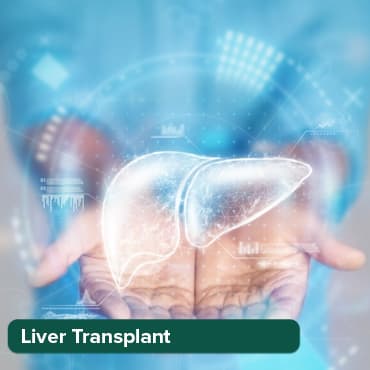
Life After Kidney Transplant in India – Advice for Bangladeshi Patients
31 Mar, 2024
 Healthtrip Team
Healthtrip TeamIntroduction
Kidney transplantation is a life-changing procedure that offers hope and a new lease on life for individuals suffering from end-stage renal disease (ESRD). In India, where the demand for kidneys far outweighs the supply, getting a transplant is a significant milestone. However, the journey does not end with the surgery itself. Life after kidney transplant in India comes with its own set of challenges and adjustments. In this comprehensive guide, we will explore what to expect after a kidney transplant, how to maintain a healthy lifestyle, and the stories of individuals who have thrived after the procedure.
Transform Your Beauty, Boost Your Confidence
Find the right cosmetic procedure for your needs.

We specialize in a wide range of cosmetic procedures

Recovery After Transplant Surgery
Recovery after kidney transplant surgery may vary from person to person, but there are general guidelines that you are expected to follow. After the procedure, you can expect to spend 3-4 days in the hospital under close observation. During this time, the transplant team will monitor your recovery and ensure that the new kidney is functioning properly. Some discomfort and soreness in the belly area and side are common in the first week after surgery. It is important to gradually start moving around and engaging in light physical activity to aid in the healing process. In some cases, the new kidney may start working immediately, while in others, dialysis may be required temporarily until the kidney starts functioning optimally.
Immunosuppressant Medications
To prevent rejection of the transplanted kidney, immunosuppressant medications, also known as anti-rejection medicines, are prescribed. These medications suppress the immune system's response to the new kidney, reducing the risk of rejection. There are three types of immunosuppressants: induction immunosuppressants, maintenance immunosuppressants, and rejection immunosuppressants. Induction immunosuppressants are administered before or immediately after the transplant surgery to prevent early rejection. Maintenance immunosuppressants are taken daily for the long-term, while rejection immunosuppressants are used if the body shows signs of rejecting the kidney. It is crucial to take these medications as prescribed and never miss a dose to ensure the success of the transplant.
Preventing Rejection and Promoting Healthy Living
Preventing rejection and maintaining a healthy lifestyle are crucial for long-term success after a kidney transplant. Here are some tips to promote a healthy life after the procedure:
Most popular procedures in India
Atrial septal defect
Upto 80% off
90% Rated
Satisfactory

Coronary Angiogram a
Upto 80% off
90% Rated
Satisfactory

Coronary Angiogram C
Upto 80% off
90% Rated
Satisfactory

Liver Transplant
Upto 80% off
90% Rated
Satisfactory

Total Hip Replacemen
Upto 80% off
90% Rated
Satisfactory

-Follow a Healthy Diet and Exercise Regularly
Following a healthy diet is essential to keep blood pressure in check and support overall kidney health. A diet low in salt and fat is recommended, especially for those with diabetes who need to monitor their sugar levels. A dietician will provide a personalized meal plan to support kidney function. Regular exercise is also important for maintaining heart and lung health, improving mood, and preventing weight gain. It is important to consult with your healthcare team before starting any exercise routine after surgery.
-Be Diligent with Medications and Immunizations
Taking immunosuppressant medications as prescribed is of utmost importance to prevent rejection. These medications weaken the immune system, making individuals more susceptible to infections. It is crucial to follow the prescribed medication schedule and never skip a dose. Additionally, staying up to date with immunizations is essential to protect against preventable diseases.
-Prioritize Mental Health and Seek Support
Undergoing a kidney transplant is a major life event that can bring about a range of emotions. It is normal to feel happiness and gratitude for the gift of donation, but it is also common to experience feelings of overwhelm, stress, anxiety, or guilt. It is important to communicate and seek support from loved ones, transplant teams, and mental health professionals if needed. Mental health support is crucial for navigating the emotional challenges that may arise post-transplant.
Life After Kidney Transplant in India:Long-Term Health Considerations
While a kidney transplant offers a new lease on life, it is important to be aware of potential long-term health considerations. Here are some health issues that may arise after a transplant:
-Diabetes and High Blood Pressure
After a transplant, individuals may have an increased risk of developing diabetes and high blood pressure. Regular monitoring of blood sugar levels and blood pressure is essential. A healthy diet, regular exercise, and adherence to prescribed medications can help manage these conditions.
-Gout and Lupus
Gout, a form of arthritis characterized by painful joints, and lupus, an autoimmune disease, may also be experienced by some transplant recipients. Close monitoring and management of these conditions are necessary to maintain overall health.
-Skin Cancer
Immunosuppressant medications can increase the risk of developing skin cancer. It is important to protect the skin from excessive sun exposure, regularly examine the skin for any changes or abnormalities, and consult a dermatologist for proper care.
-Smoking and Tobacco Use
Smoking cigarettes and using tobacco products can negatively impact the health of the transplanted kidney. It is crucial to avoid smoking and tobacco use to reduce the risk of heart disease, cancer, and lung disease. Quitting smoking and seeking support for tobacco cessation can greatly improve long-term outcomes.
Life After Kidney Transplant – Stories That Inspire
Drawing inspiration from the life-after-kidney-transplant stories of individuals who have not only survived but thrived, these narratives serve as a source of motivation for others facing similar journeys. These compelling accounts represent the resilience, determination, and positive outcomes that can be attained after a transplant. Here, we share a few examples:
Pratibha Patil: Overcoming Challenges and Embracing a New Lease on Life
Pratibha’'s journey began when they were diagnosed with end-stage renal disease. After undergoing a kidney transplant, Pratibha faced various challenges during the recovery process. However, with the support of their healthcare team and loved ones, she persevered and regained their health. Today, they live a fulfilling life, enjoying activities they once thought were impossible.
Subham Agarwal: Advocating for Organ Donation and Raising Awareness
Subham received a kidney transplant and was deeply grateful for the gift of life. Inspired by their own experience, he became a passionate advocate for organ donation, raising awareness about the importance of registering as an organ donor. Through their efforts, Subham has touched the lives of many and continues to make a positive impact in the transplant community.
Akshay Khanna: Thriving as a Transplant Athlete
Akshay, a dedicated athlete, faced the challenge of kidney failure. After receiving a kidney transplant, Akshay worked diligently to regain their strength and pursue their passion for sports. Today, he participates in various athletic events, proving that life after a kidney transplant can be full of possibilities and achievements.
Conclusion:
Life after a kidney transplant in India is a journey filled with both challenges and triumphs. Recovery from surgery, adherence to medications, and the promotion of a healthy lifestyle are essential for long-term success. By prioritizing physical and mental well-being, individuals can thrive and embrace their newfound lease on life. The stories of those who have overcome obstacles and achieved remarkable feats after a kidney transplant serve as inspiration for others facing similar journeys. With ongoing support, care, and a positive mindset, life after a kidney transplant can be a fulfilling and vibrant experience.
In the realm of medical tourism, Healthtrip.com has emerged as a trusted assistant for hundreds and thousands of foreign medical tourists seeking kidney transplants in India. Recognizing the complexity of the procedure, which involves extensive paperwork, numerous tests, and significant expenses, Healthtrip.com takes charge of critical but secondary matters. This approach allows patients and their companions to focus on the primary aspects of treatment and recovery.
We encourage you to explore the success stories featured on the Healthtrip website to gain insights and make informed choices. These stories not only provide inspiration but also showcase the positive impact of prioritizing health and well-being during the post-transplant phase. With ongoing support, care, and a positive mindset, life after a kidney transplant can evolve into a fulfilling and vibrant experience.
Wellness Treatment
Give yourself the time to relax
Lowest Prices Guaranteed!

Lowest Prices Guaranteed!
